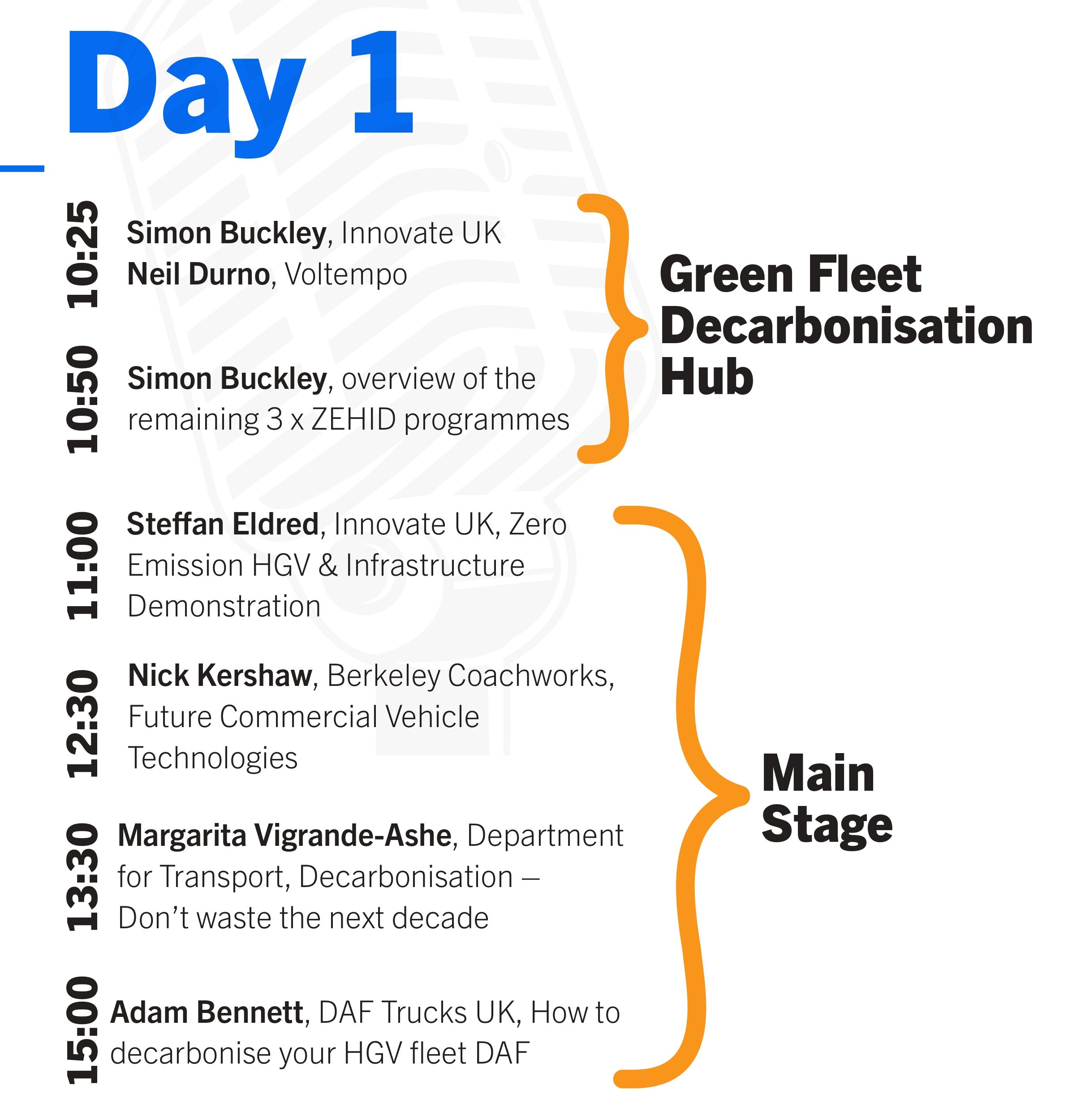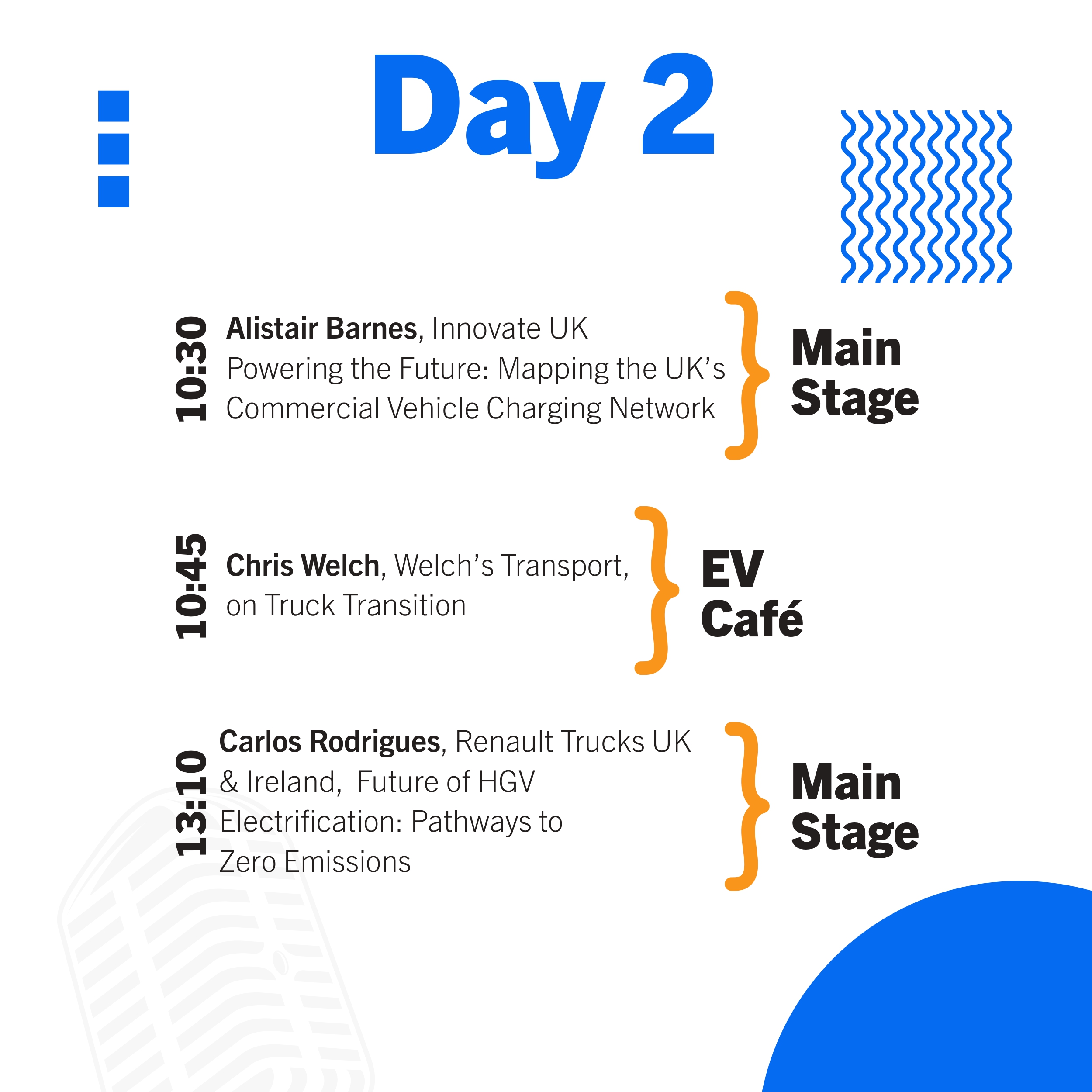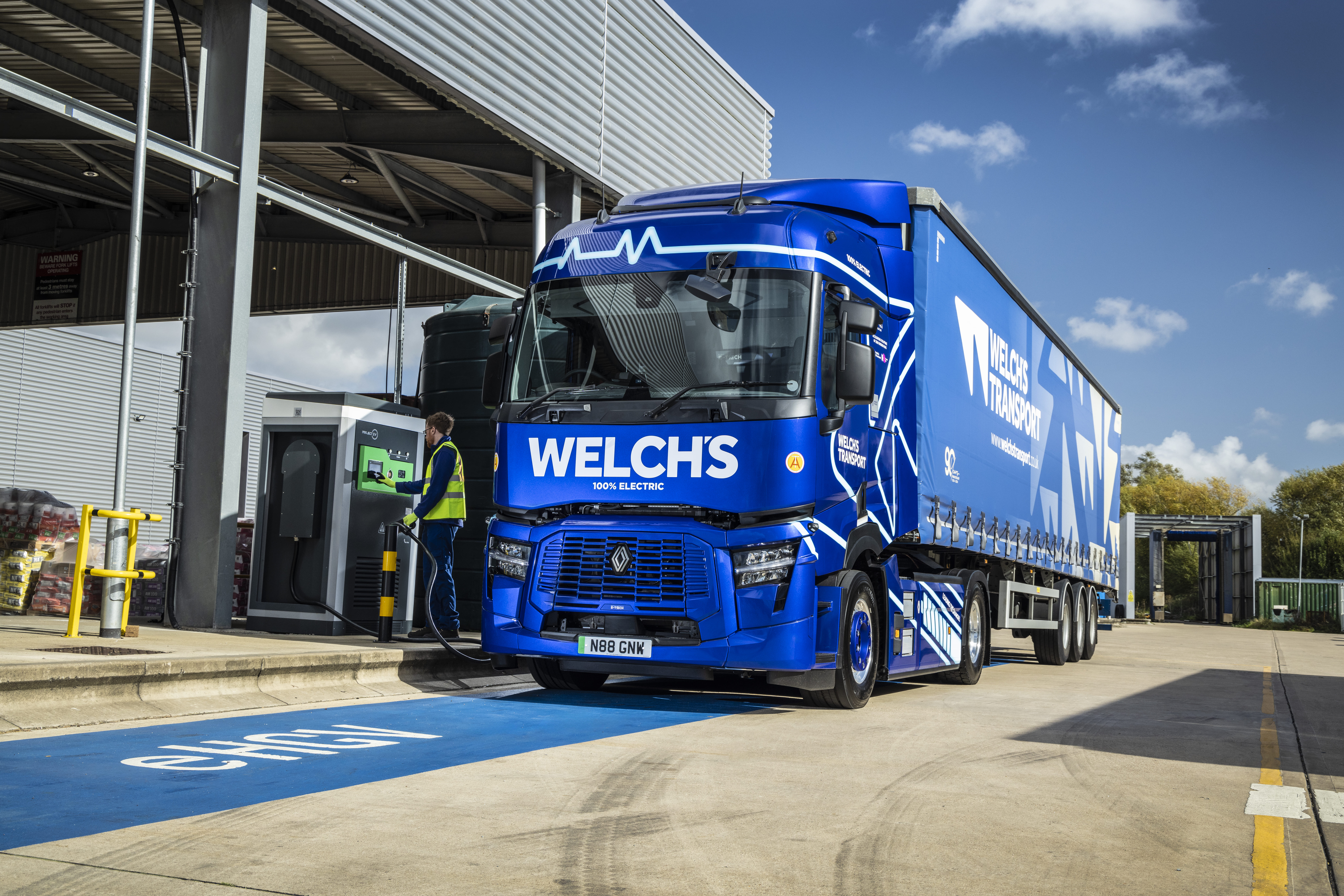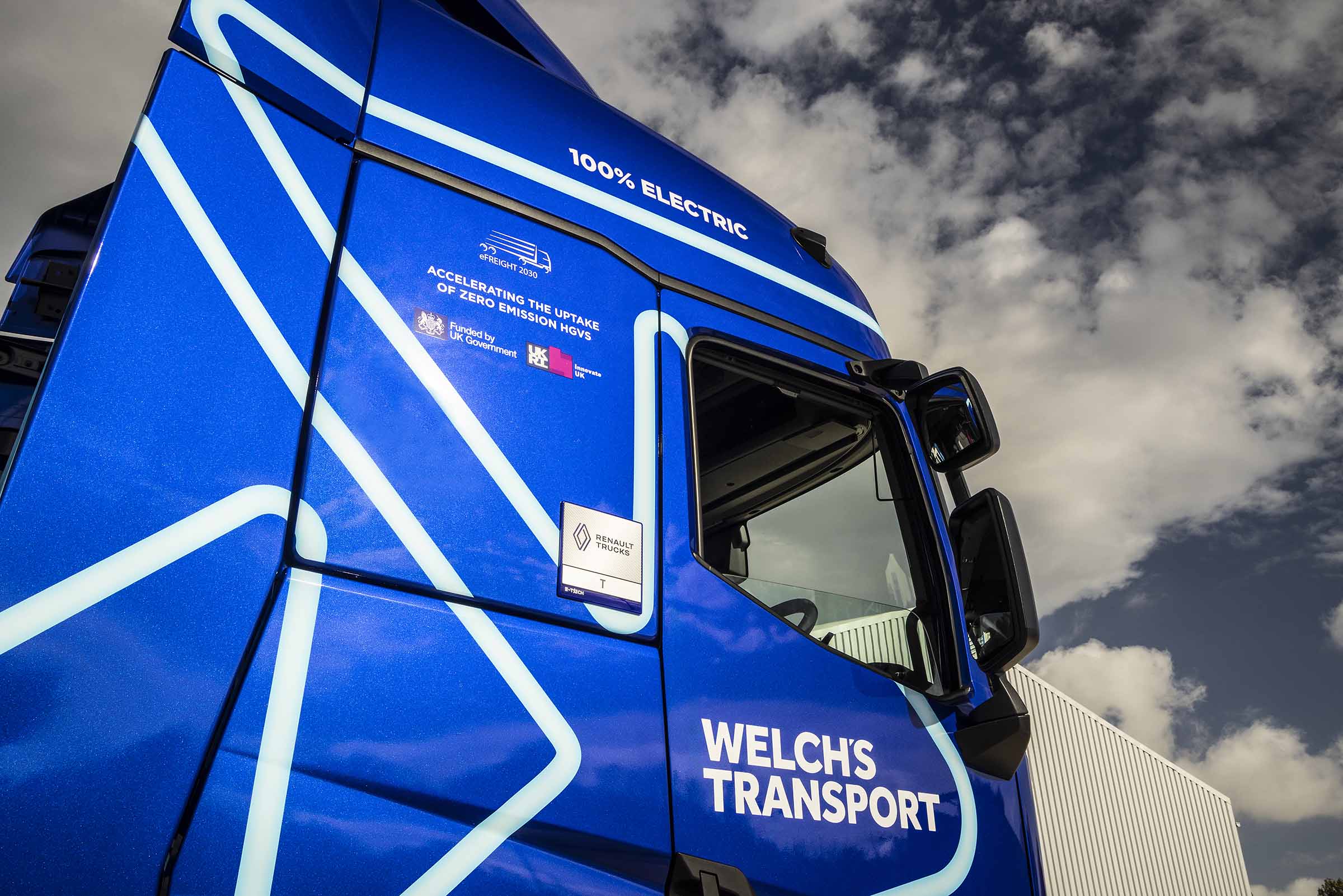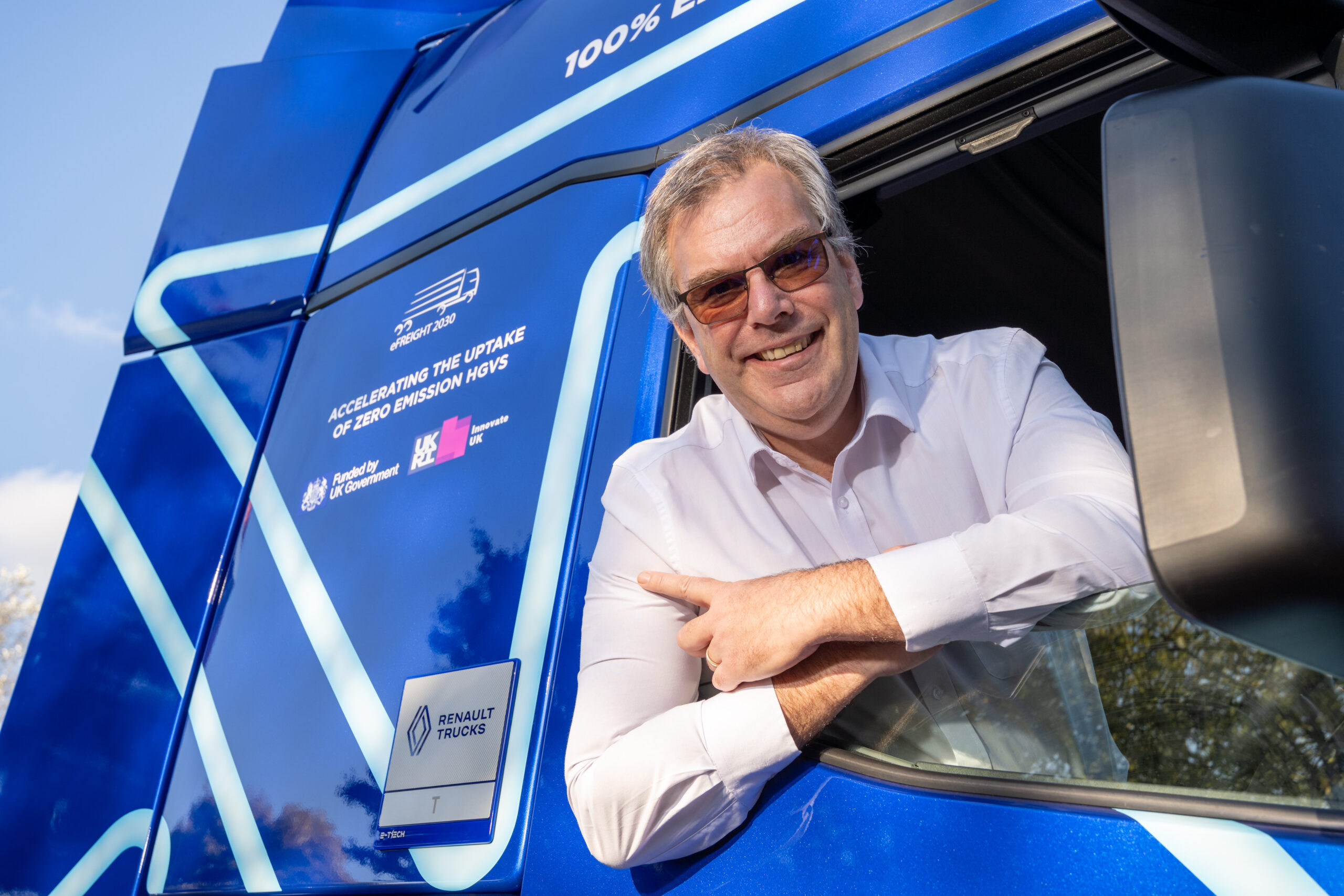New members to demonstrate electric vehicles in challenging use cases
eFREIGHT 2030, part of the UK Government’s Zero Emission HGV and Infrastructure Demonstrator Programme (ZEHID), has announced Tarmac and TVS Interfleet (TVS) as the latest members of its consortium, which aims to shape the future of zero emission HGVs.
Tarmac and TVS join the fourteen founding members of the eFREIGHT 2030 consortium, part of the ZEHID Programme funded by the Department for Transport and delivered in partnership with Innovate UK. The eFREIGHT 2030 project is introducing 100 electric HGV tractor units and 32 new charging locations over a multi-year real world evaluation that will pave the way for zero emission transport.
As part of eFREIGHT 2030, Tarmac will add five eHGVs equipped with a range of trailers to supply its cement, aggregate, asphalt and plant movements. With zero tailpipe emissions, the eHGVs align with Tarmac’s strategy to develop integrated low-carbon logistics solutions and will demonstrate how electric vehicles can work in more challenging use cases such as construction. Additionally, Tarmac is developing a fast-charging network around the London area which will enable truck range to be increased, match the duty cycle of its existing fleet and accelerate the decarbonisation of material deliveries to customers.
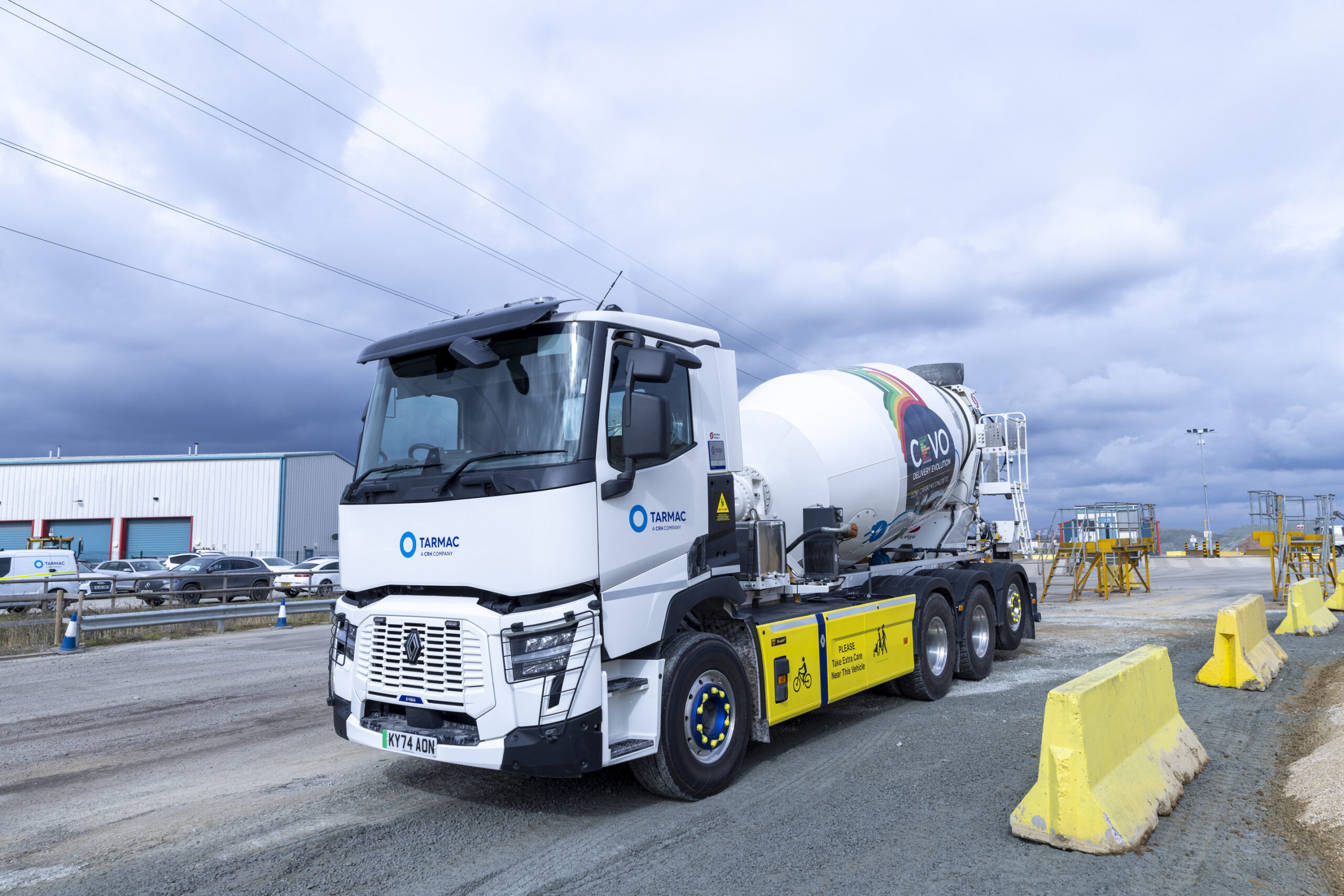
TVS Interfleet company Wilcox Commercial Vehicles will supply one of the trailers for aggregate and asphalt movements, and this will be equipped with a new Tipper Active Safety System (TASS) with passive and active safety controls to increase the safety of the trailer during its tipping operations.
The eHGVs, four Renault Trucks and one DAF, will join Tarmac’s pioneering eDiscovery Programme, which allows supply chain partners to lease an electric truck for a six month period, enabling them to evaluate the vehicle’s performance in their operation before committing to a long-term investment.
Ben Garner, Head of Logistics at Tarmac, said; “We are delighted to join the eFREIGHT 2030 consortium, reiterating our commitment to our sustainability goals and reducing emissions across our logistics network. At Tarmac, we are focused on delivering innovative, low-carbon solutions that support our transition to net-zero, and our partnership with TVS Interfleet and our OEM partners enables us to continue our drive toward decarbonising the construction sector. By bringing eHGVs into these demanding aspects of Tarmac’s operations and working with like-minded partners through eFREIGHT 2030, it further strengthens our ability to create a greener construction supply chain.”
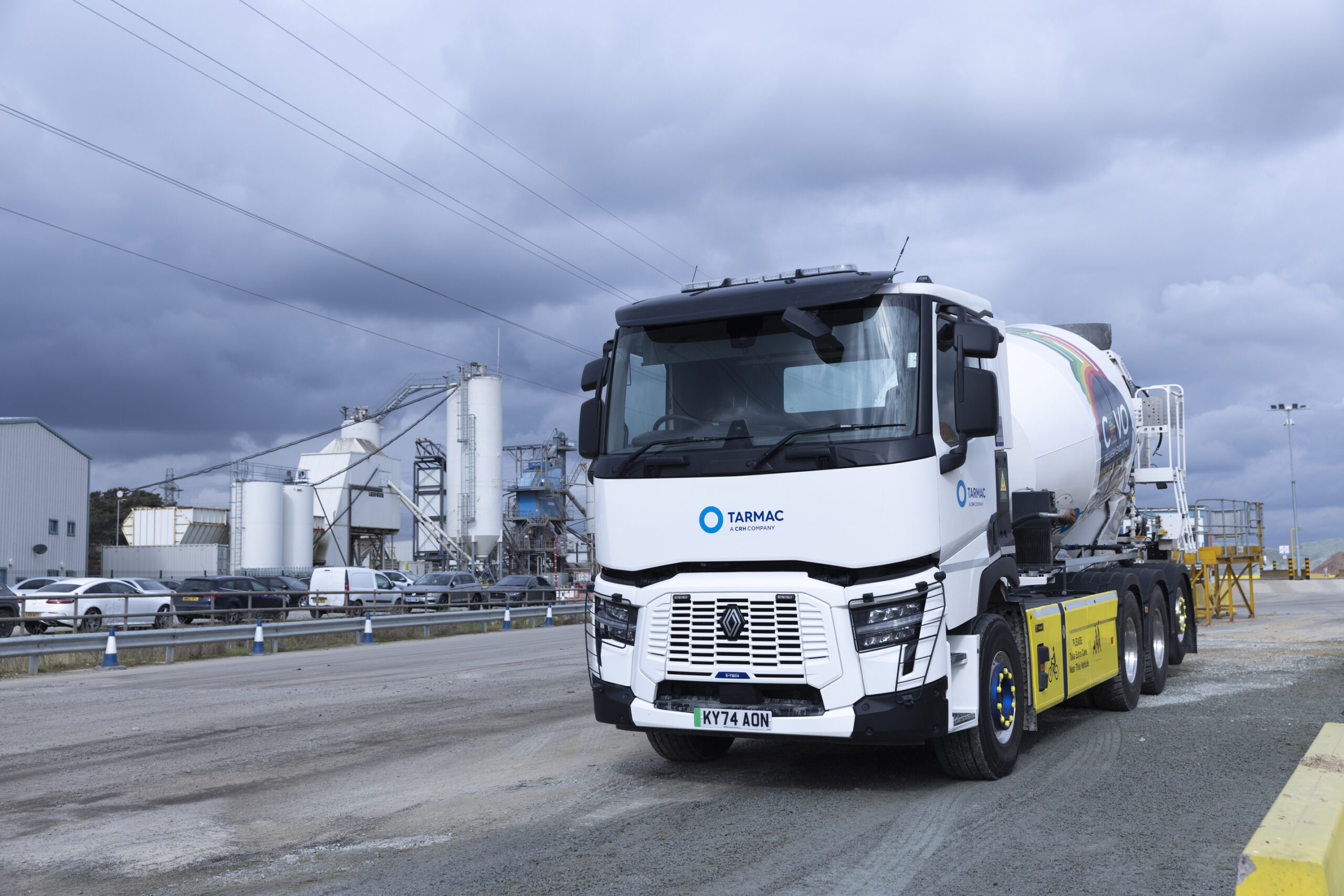
Andrew Scott, Product Director at TVS Interfleet, commented: “Joining eFREIGHT 2030 enables us to extend the partnership with Tarmac which saw us develop the UK’s first electric concrete mixer. As with that initiative, where we were able to develop enhanced safety systems for a familiar construction vehicle, we look forward to doing the same for the Wilcox tipping trailer. We look forward to working again with Tarmac to demonstrate a more sustainable future for the construction industry.”
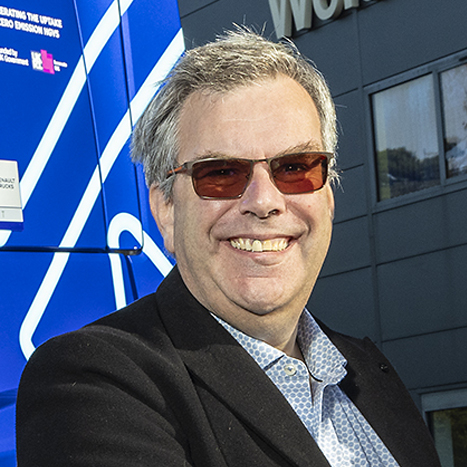
Michael Boxwell, Group Chief Executive Officer at Voltempo Limited which leads the eFREIGHT 2030 consortium, added: “We are delighted to welcome Tarmac and TVS Interfleet to the eFREIGHT 2030 consortium. The addition of electric construction vehicles to the ZEHID programme, including their deployment at several of Tarmac’s Greater London sites, is an exciting milestone. With TVS Interfleet, Tarmac continue to lead the decarbonisation of the construction sector and we are delighted to bring their innovation and ambition into the ZEHID programme and to further extend the reach of eHGVs into the most demanding transport sectors.”
Dr Isabella Panovic, Programme Manager – Zero Emission Road Freight, Innovate UK, said: “eFREIGHT 2030 is a transformative project that is paving the way for zero-emission freight transport in the UK. The addition of Tarmac and TVS Interfleet to the consortium brings valuable expertise in construction logistics and vehicle innovation, further strengthening our ability to demonstrate the real-world viability of electric HGVs. Innovate UK is proud to support this initiative, which will accelerate the transition to sustainable, low-carbon freight and contribute to the UK’s net zero ambitions.”


